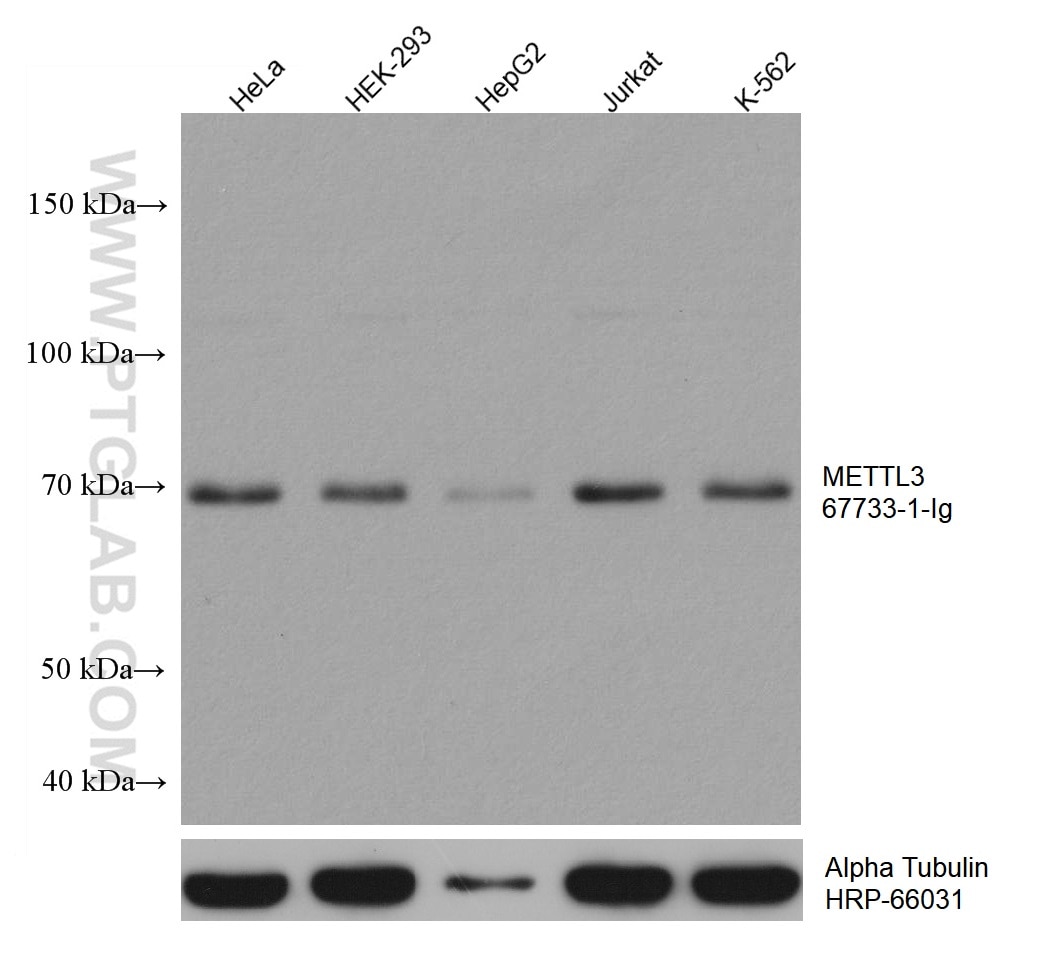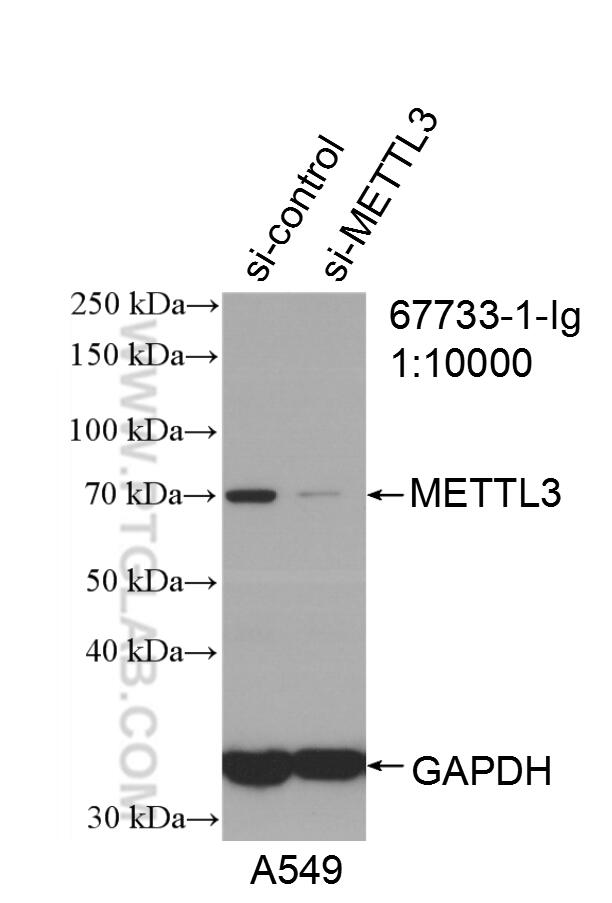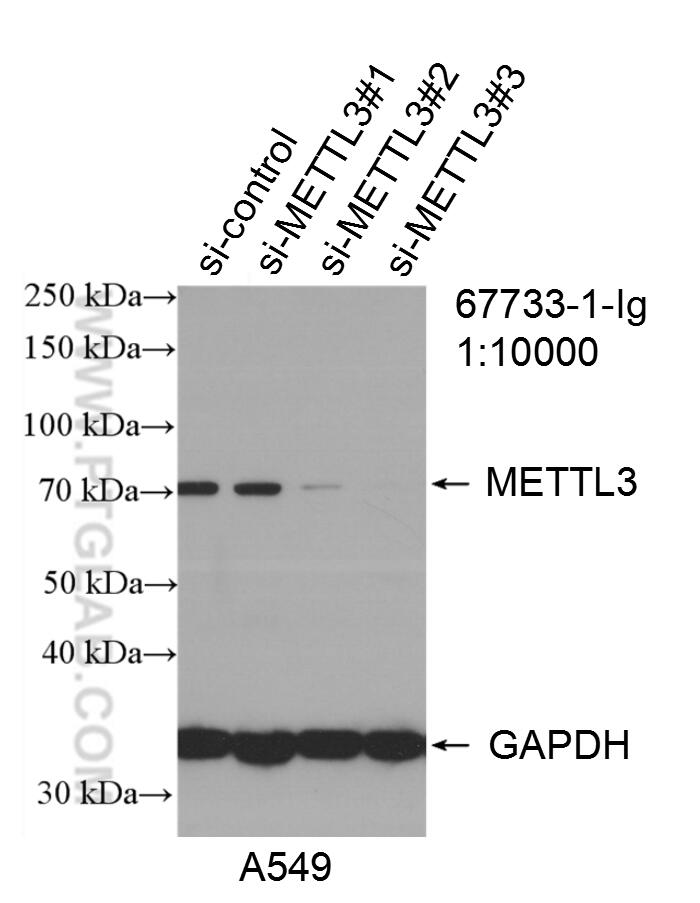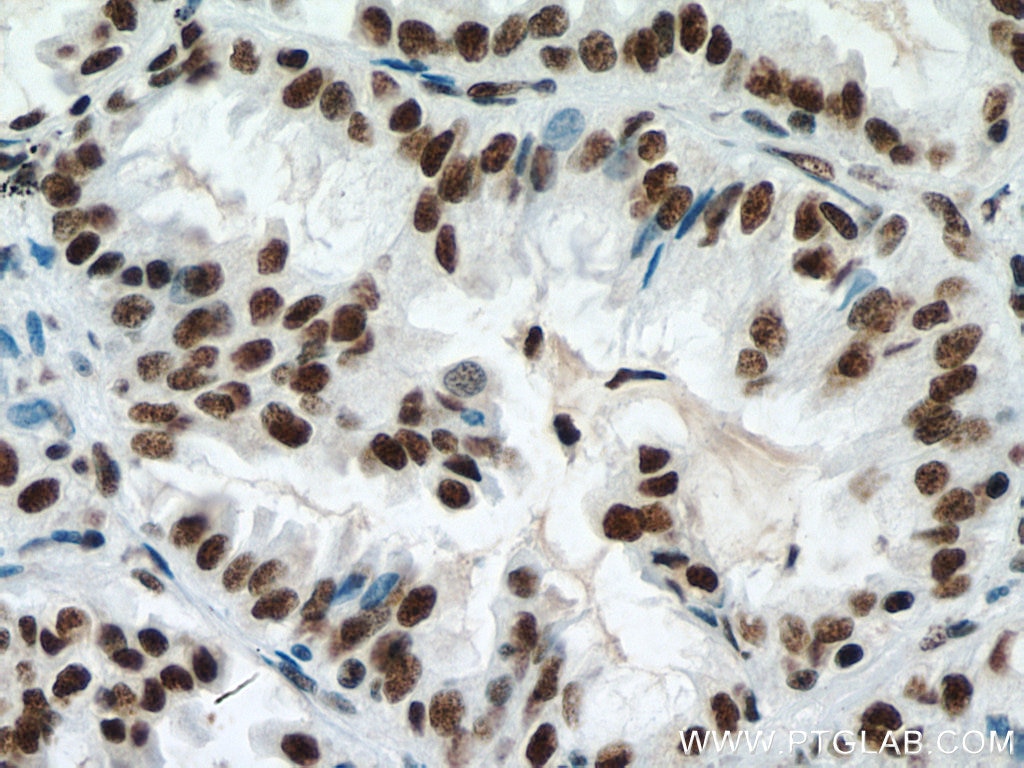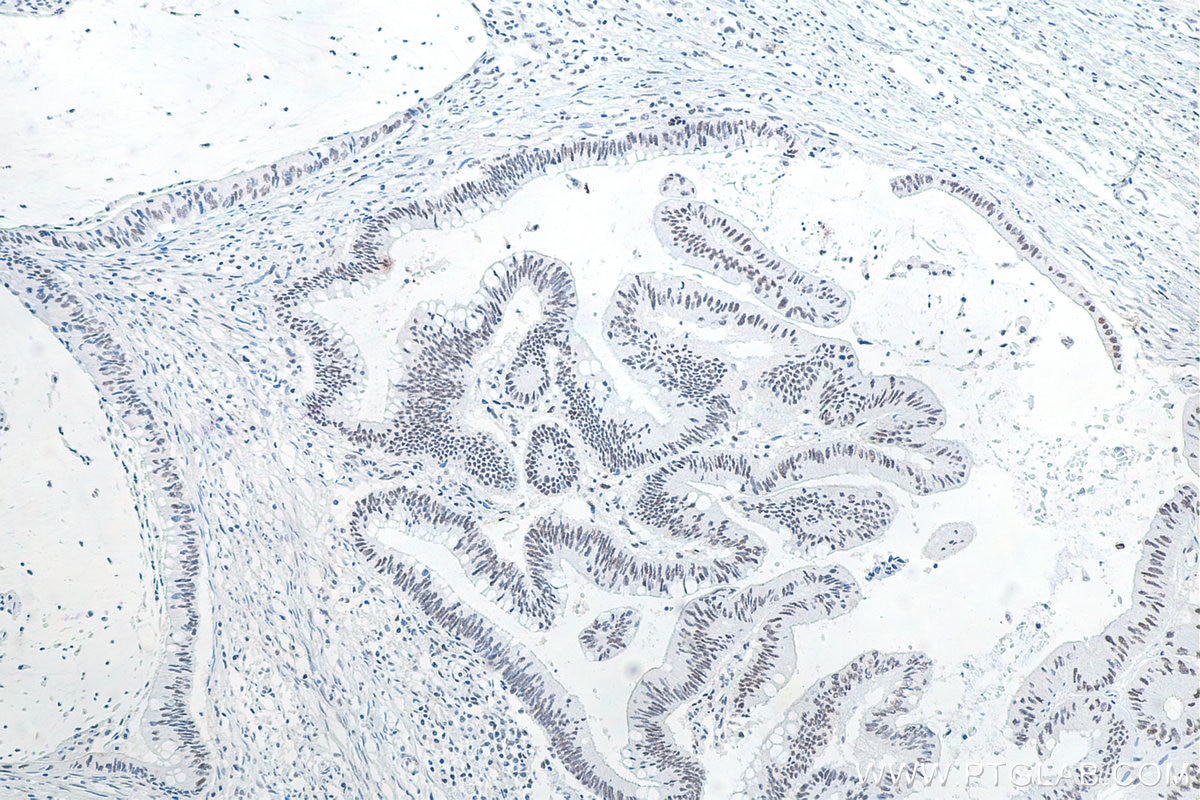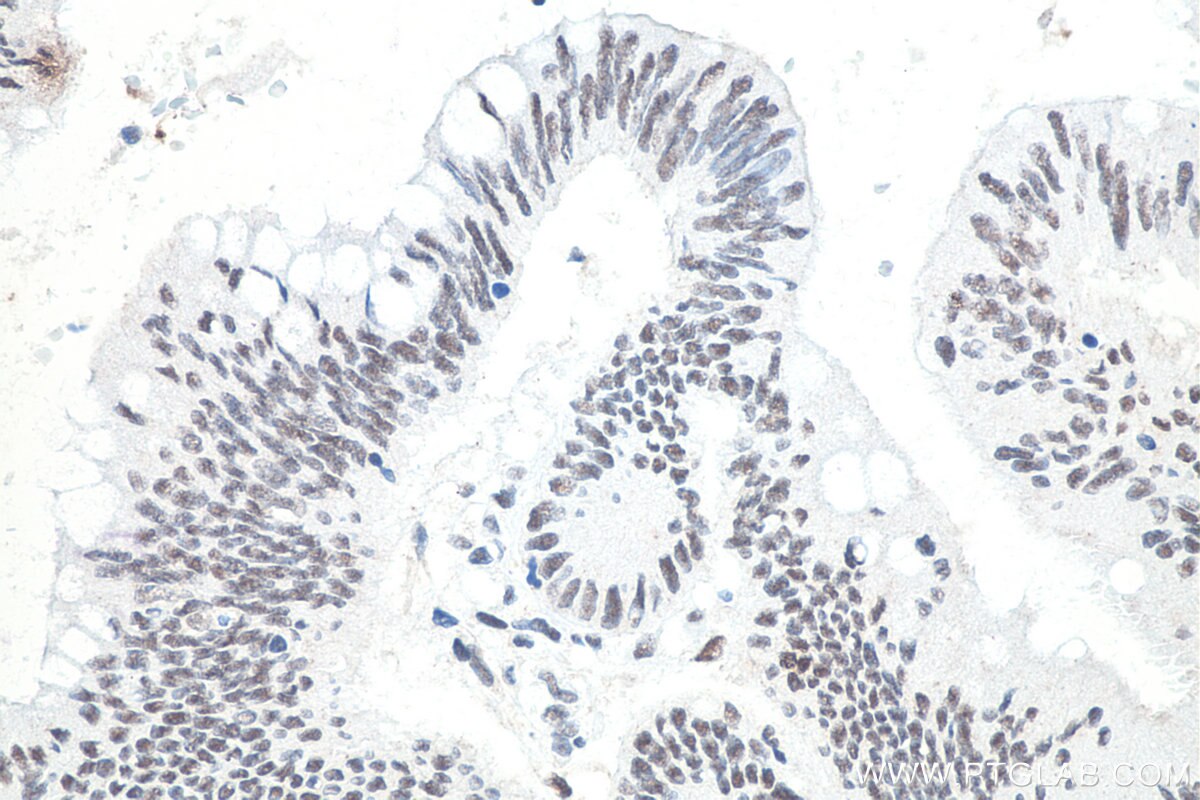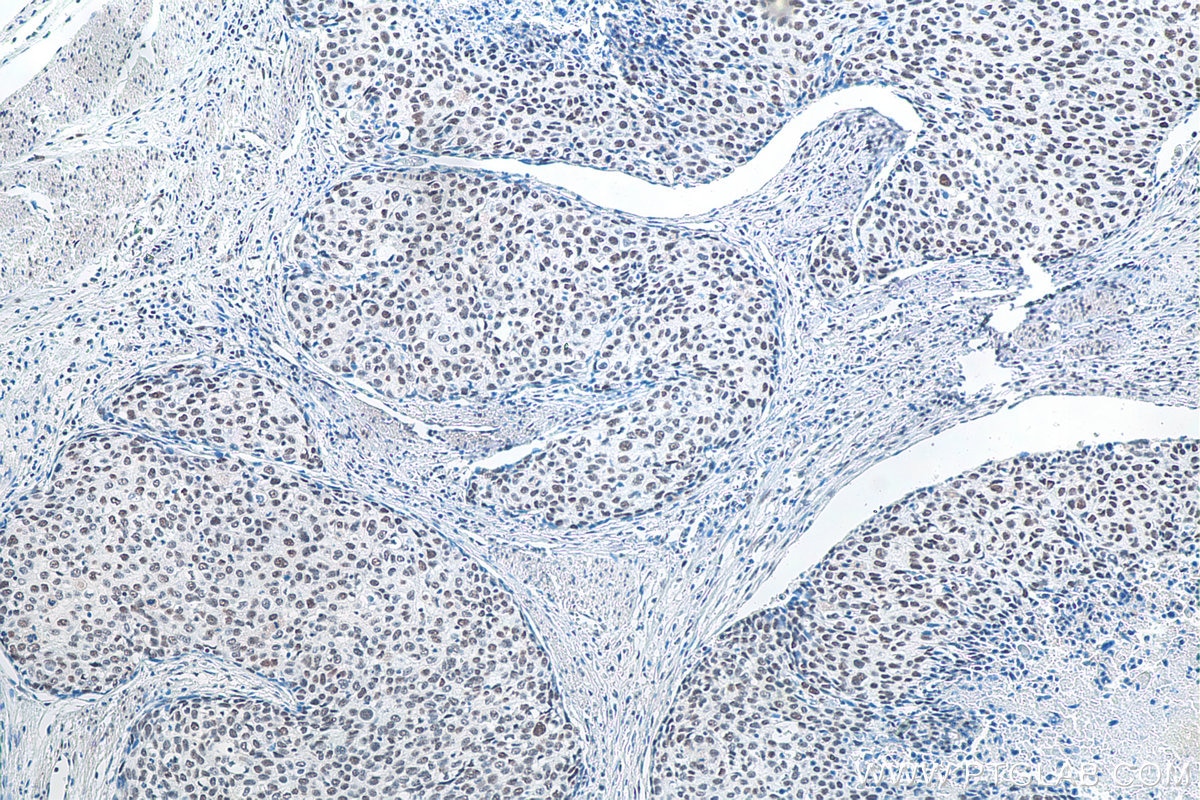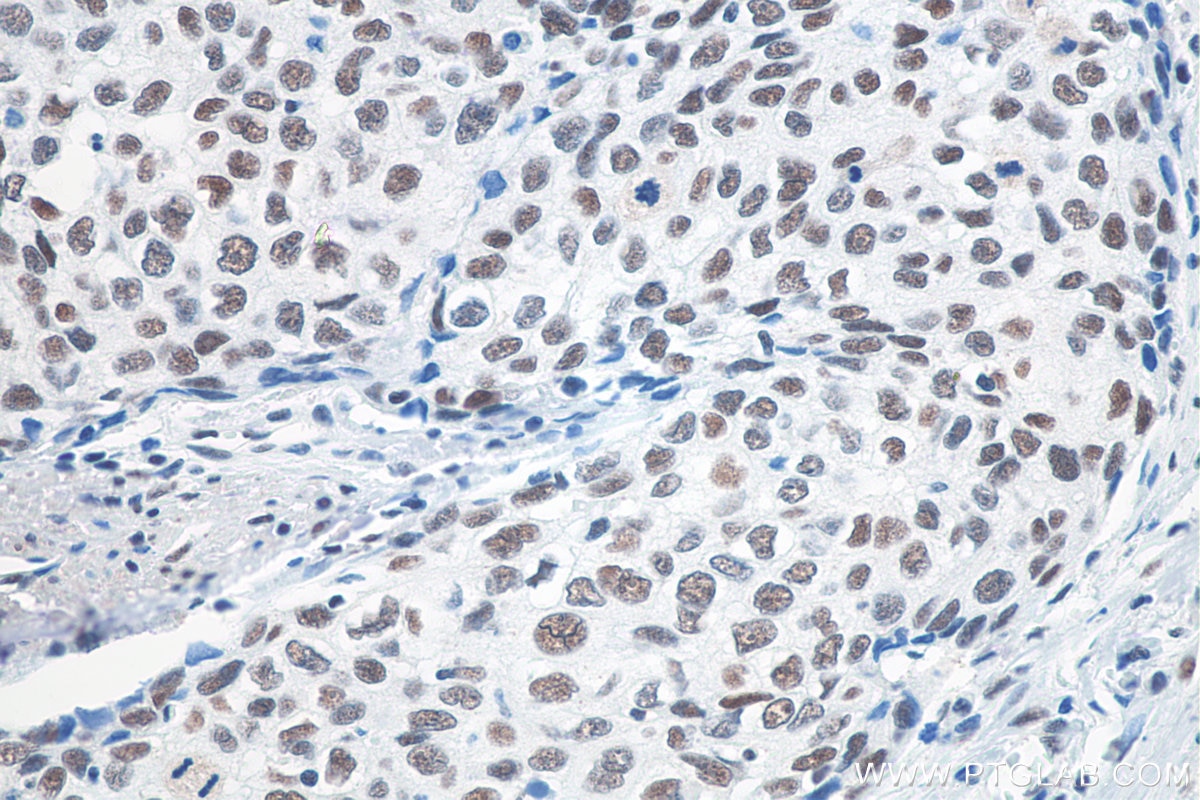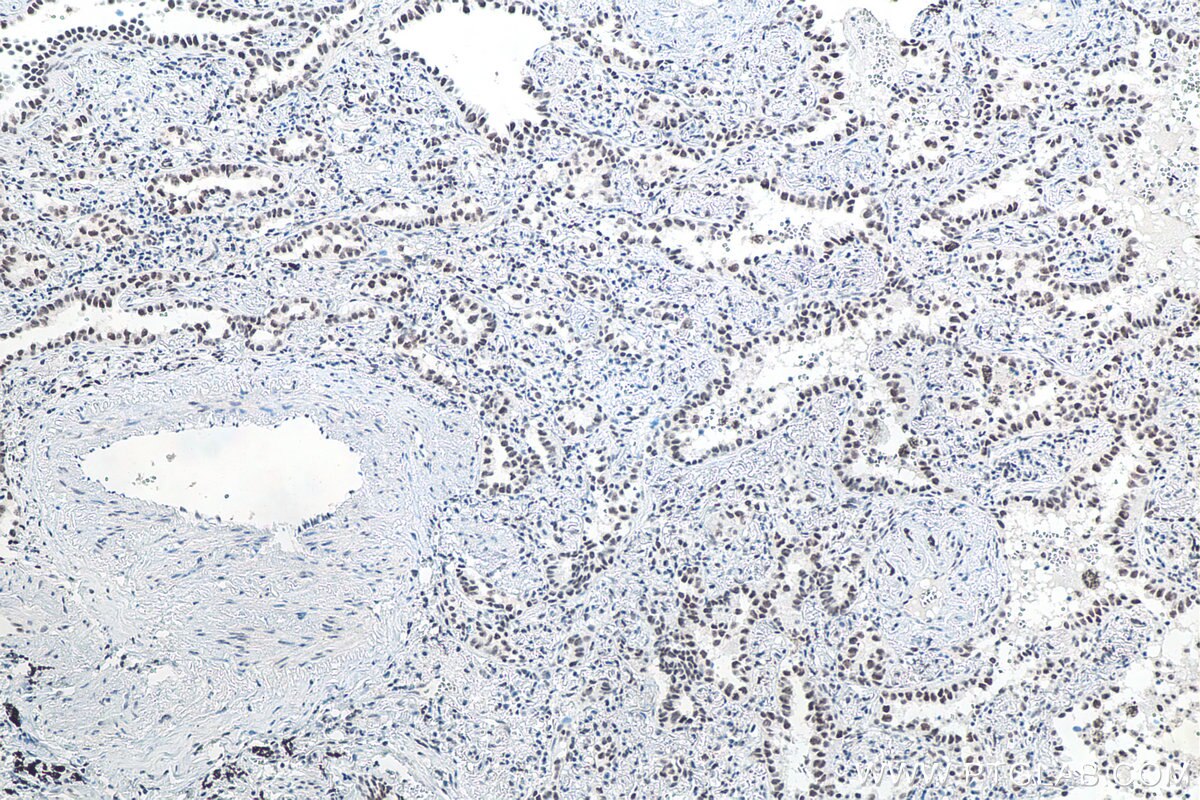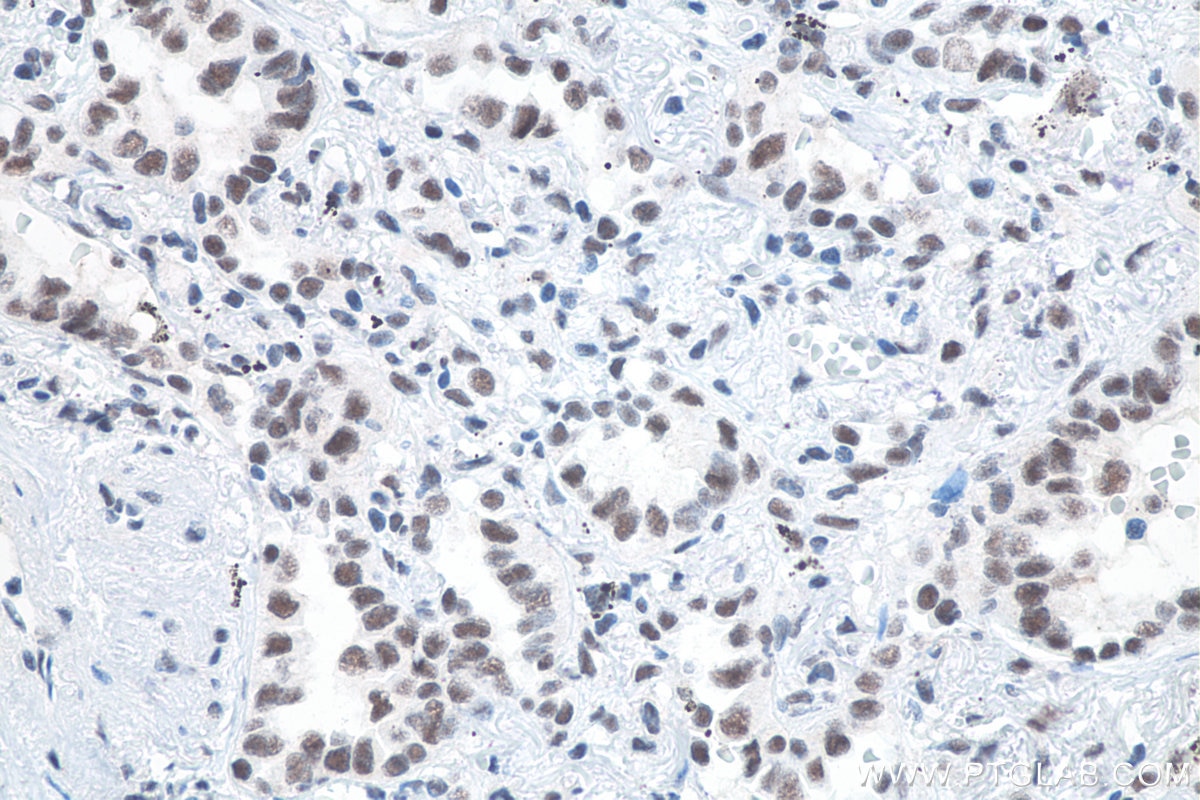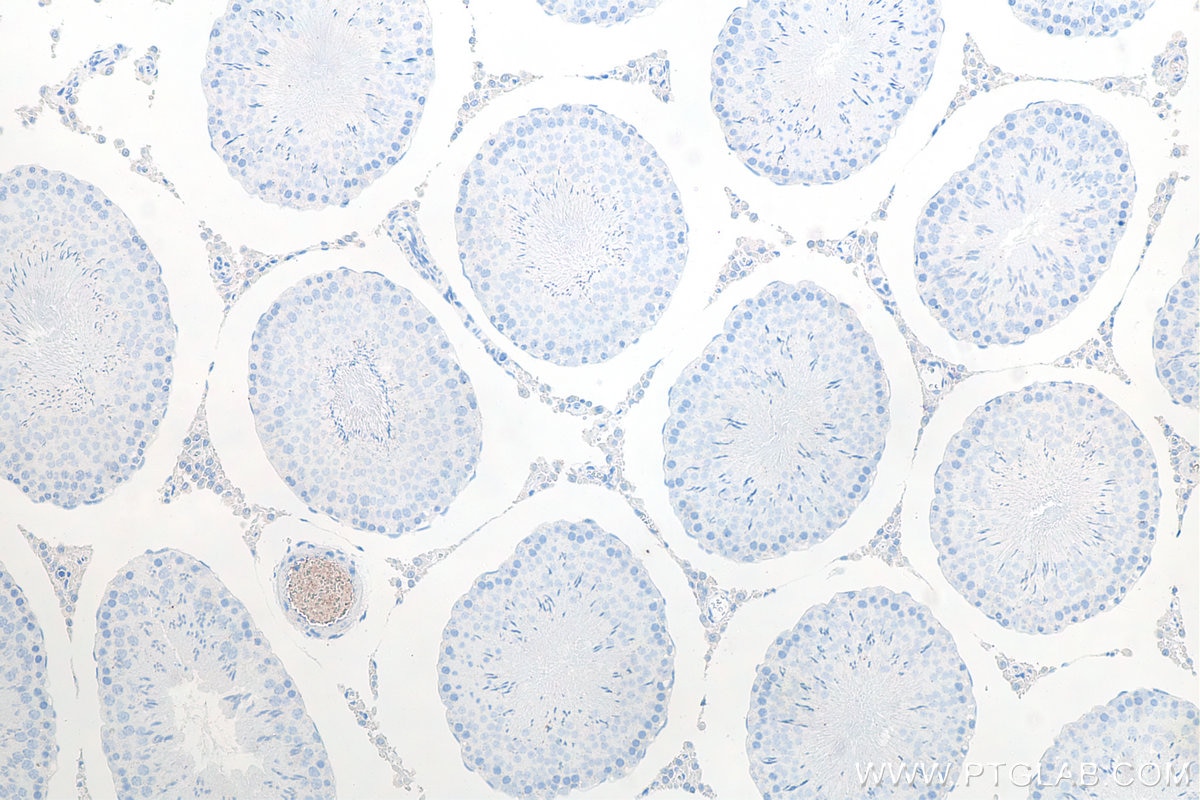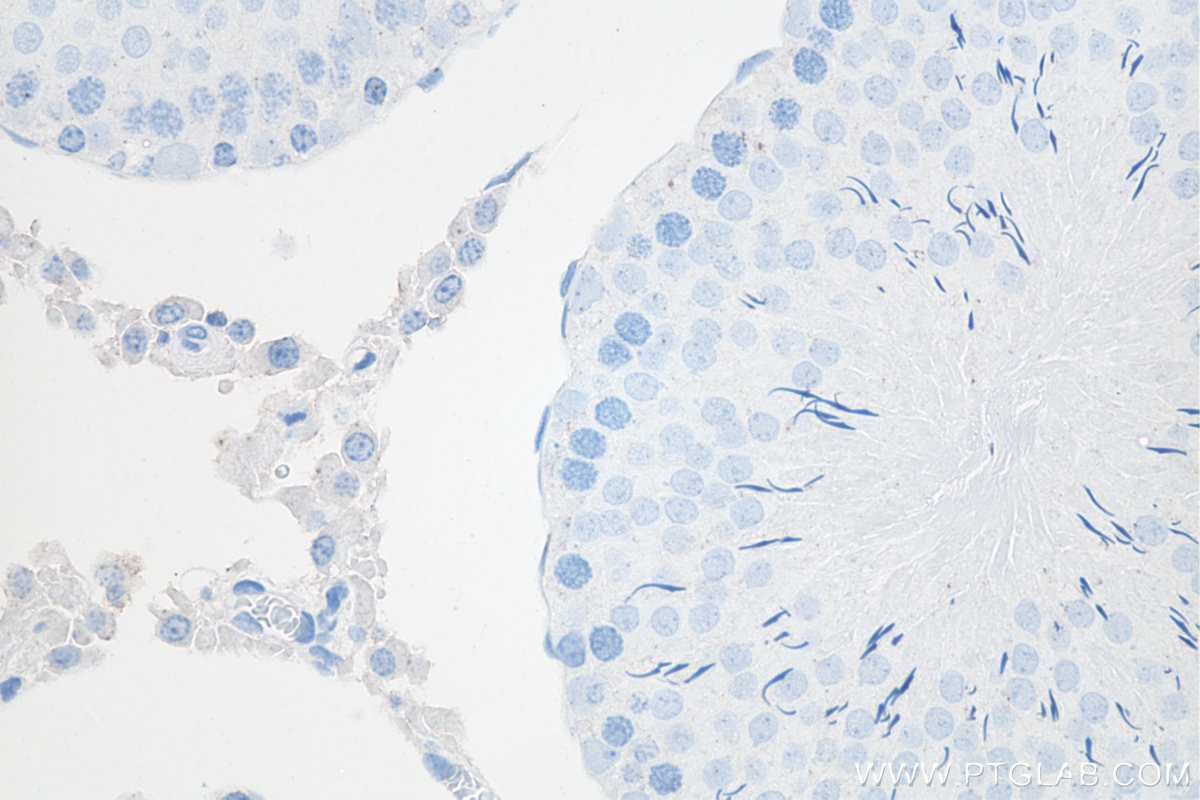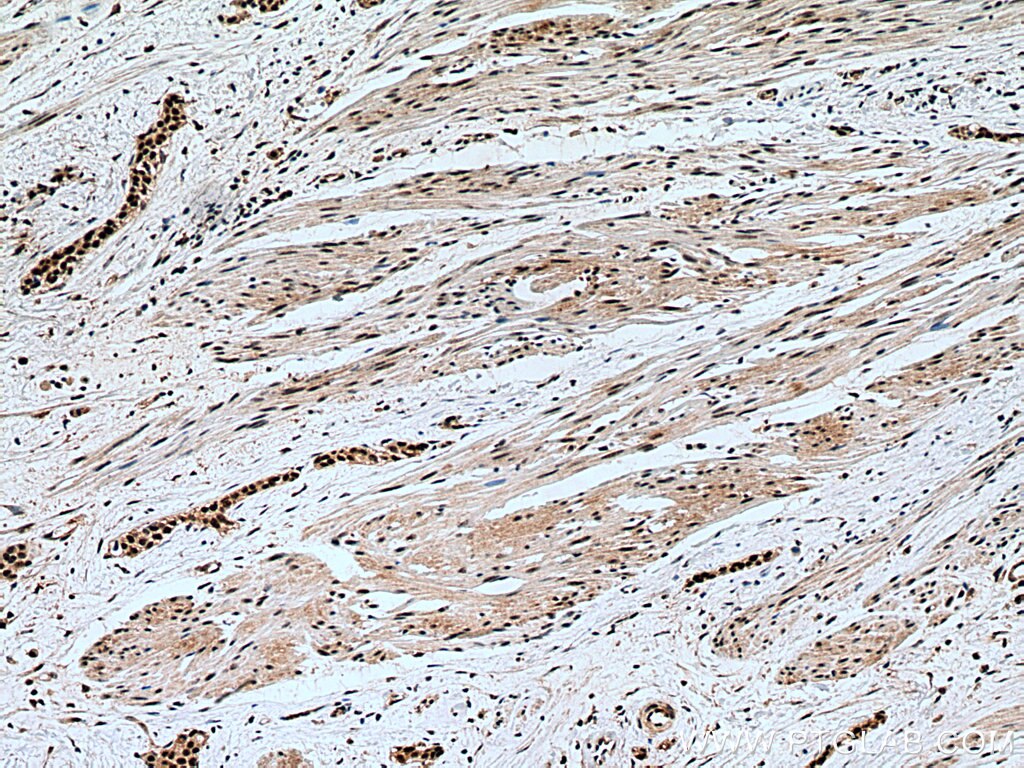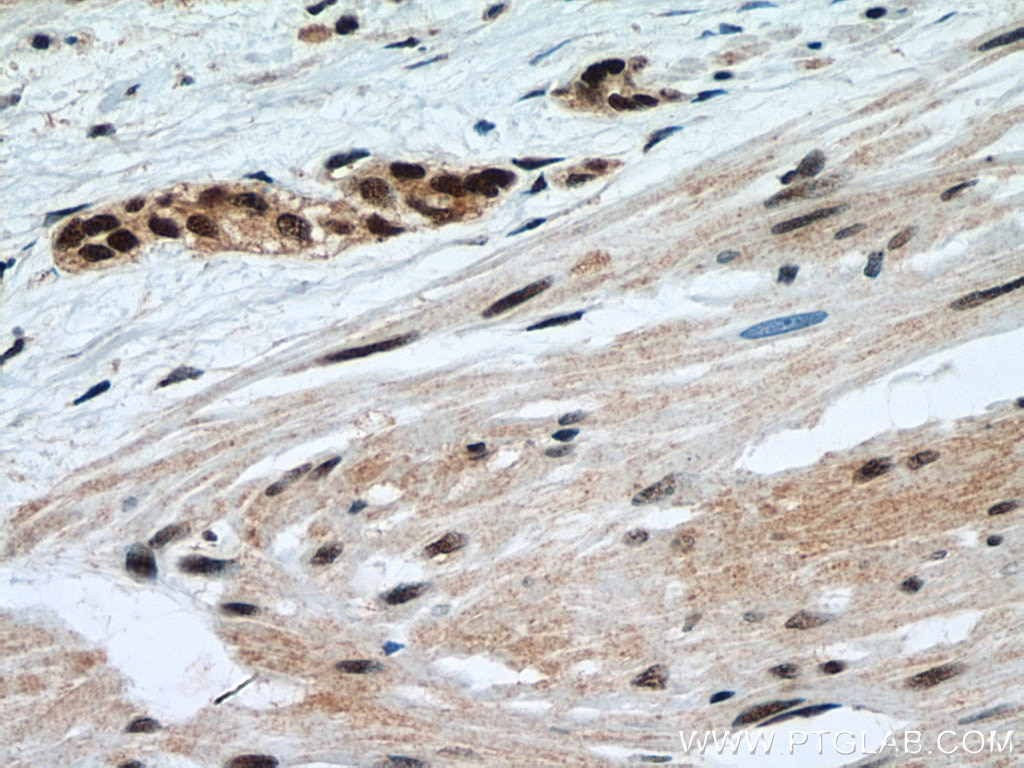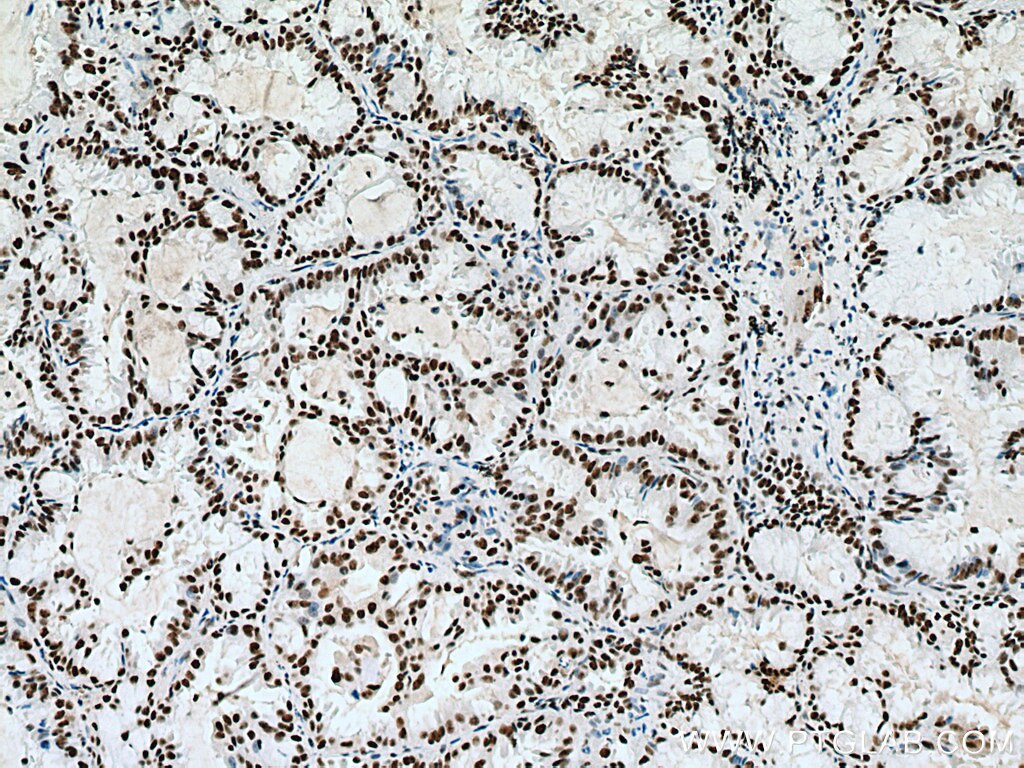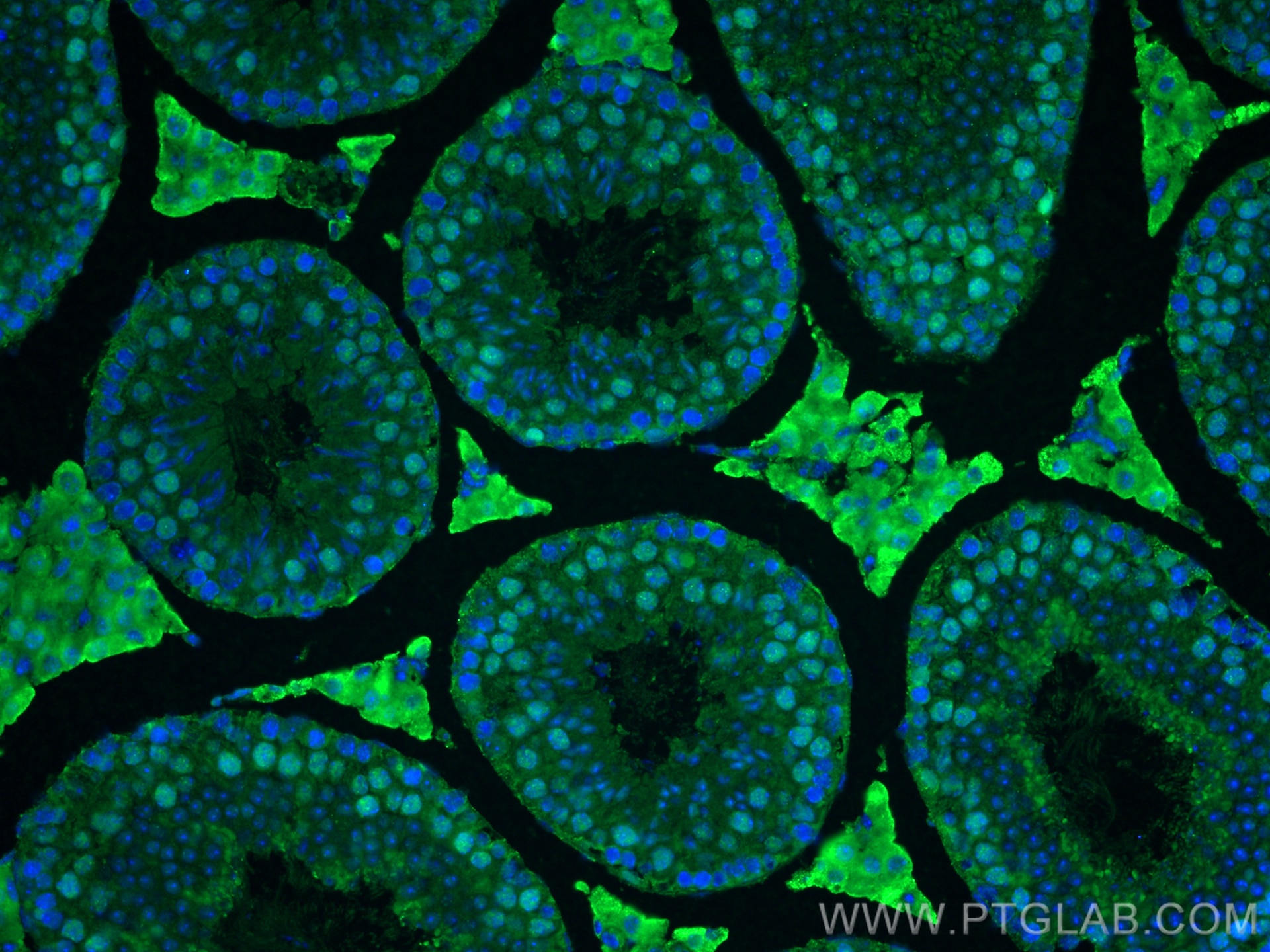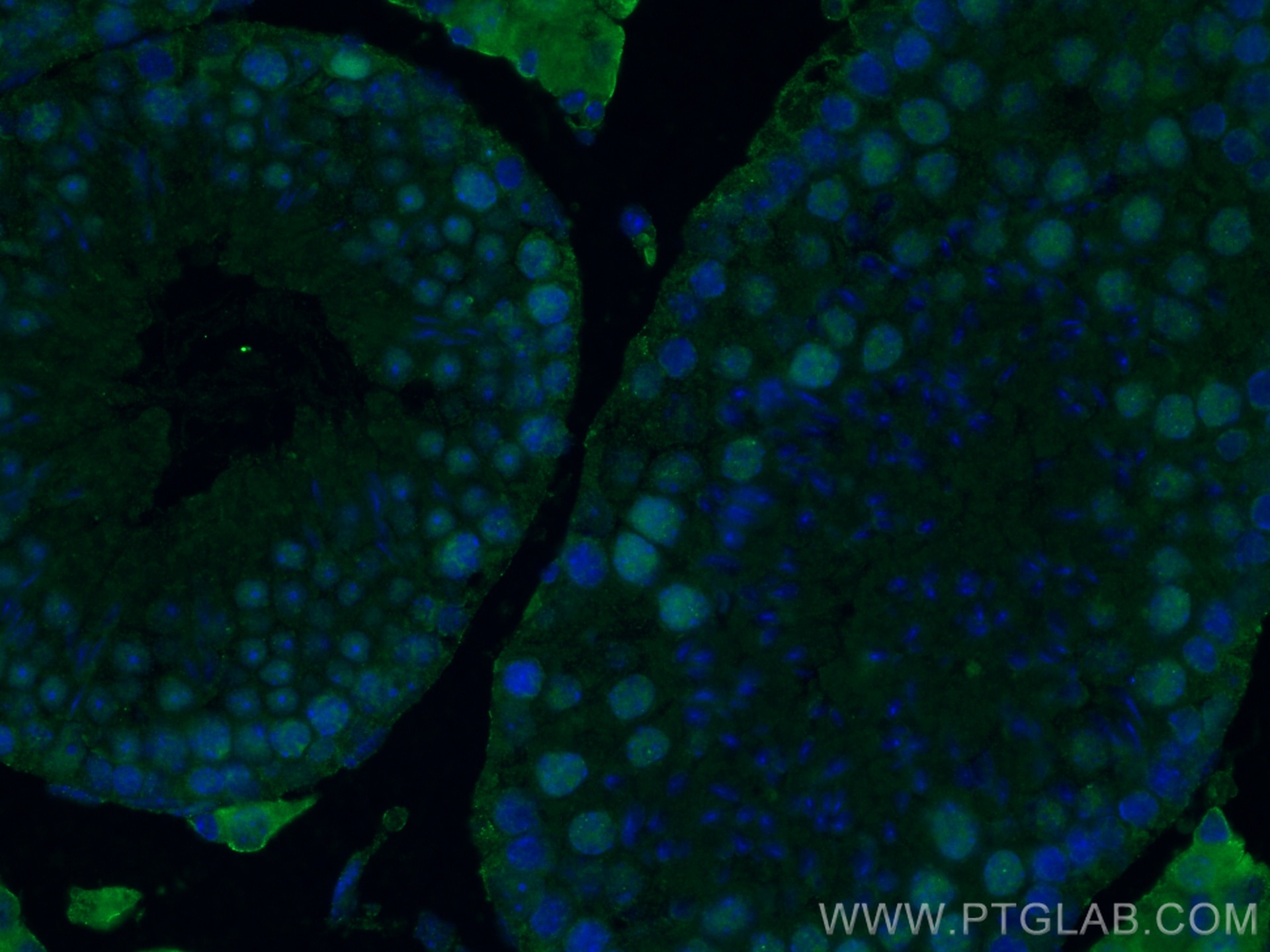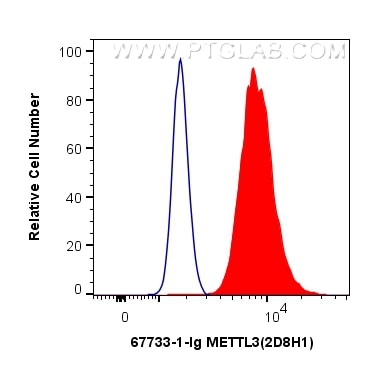- Featured Product
- KD/KO Validated
METTL3 Monoklonaler Antikörper
METTL3 Monoklonal Antikörper für FC, IF, IHC, WB, ELISA
Wirt / Isotyp
Maus / IgG1
Getestete Reaktivität
human, Maus und mehr (1)
Anwendung
WB, IP, IHC, IF, FC, ELISA
Konjugation
Unkonjugiert
CloneNo.
2D8H1
Kat-Nr. : 67733-1-Ig
Synonyme
Galerie der Validierungsdaten
Geprüfte Anwendungen
| Erfolgreiche Detektion in WB | HeLa-Zellen, A549-Zellen, HEK-293-Zellen, HepG2-Zellen, Jurkat-Zellen, K-562-Zellen |
| Erfolgreiche Detektion in IHC | humanes Lungenkarzinomgewebe, humanes Kolonkarzinomgewebe, humanes Ösophaguskarzinomgewebe, humanes Urothelkarzinomgewebe Hinweis: Antigendemaskierung mit TE-Puffer pH 9,0 empfohlen. (*) Wahlweise kann die Antigendemaskierung auch mit Citratpuffer pH 6,0 erfolgen. |
| Erfolgreiche Detektion in IF | Maushodengewebe |
| Erfolgreiche Detektion in FC | HEK-293-Zellen |
Empfohlene Verdünnung
| Anwendung | Verdünnung |
|---|---|
| Western Blot (WB) | WB : 1:5000-1:50000 |
| Immunhistochemie (IHC) | IHC : 1:500-1:2000 |
| Immunfluoreszenz (IF) | IF : 1:200-1:800 |
| Durchflusszytometrie (FC) | FC : 0.40 ug per 10^6 cells in a 100 µl suspension |
| It is recommended that this reagent should be titrated in each testing system to obtain optimal results. | |
| Sample-dependent, check data in validation data gallery | |
Veröffentlichte Anwendungen
| KD/KO | See 3 publications below |
| WB | See 6 publications below |
| IHC | See 2 publications below |
| IF | See 3 publications below |
| IP | See 3 publications below |
Produktinformation
67733-1-Ig bindet in WB, IP, IHC, IF, FC, ELISA METTL3 und zeigt Reaktivität mit human, Maus
| Getestete Reaktivität | human, Maus |
| In Publikationen genannte Reaktivität | human, Maus, Ratte |
| Wirt / Isotyp | Maus / IgG1 |
| Klonalität | Monoklonal |
| Typ | Antikörper |
| Immunogen | METTL3 fusion protein Ag7110 |
| Vollständiger Name | methyltransferase like 3 |
| Berechnetes Molekulargewicht | 64 kDa |
| Beobachtetes Molekulargewicht | 65-70 kDa |
| GenBank-Zugangsnummer | BC001650 |
| Gene symbol | METTL3 |
| Gene ID (NCBI) | 56339 |
| Konjugation | Unkonjugiert |
| Form | Liquid |
| Reinigungsmethode | Protein-G-Reinigung |
| Lagerungspuffer | PBS mit 0.02% Natriumazid und 50% Glycerin pH 7.3. |
| Lagerungsbedingungen | Bei -20°C lagern. Nach dem Versand ein Jahr lang stabil Aliquotieren ist bei -20oC Lagerung nicht notwendig. 20ul Größen enthalten 0,1% BSA. |
Hintergrundinformationen
METTL3 is a key S-adenosyl-L-methionine-binding subunit, which is component of a complex multicomponent enzyme that catalyzes the methylation of internal adenosine residues in eukaryotic mRNA, forming N6-methyladenosine. It contains 2 putative nuclear localization signals and 2 consensus methylation motifs. The calculated molecular weight of METTL3 is 64 kDa, but modified METTL3 is about 65-70 kDa.
Protokolle
| Produktspezifische Protokolle | |
|---|---|
| WB protocol for METTL3 antibody 67733-1-Ig | Protokoll herunterladen |
| IHC protocol for METTL3 antibody 67733-1-Ig | Protokoll herunterladen |
| IF protocol for METTL3 antibody 67733-1-Ig | Protokoll herunterladen |
| FC protocol for METTL3 antibody 67733-1-Ig | Protokoll herunterladen |
| Standard-Protokolle | |
|---|---|
| Klicken Sie hier, um unsere Standardprotokolle anzuzeigen |
Publikationen
| Species | Application | Title |
|---|---|---|
Cancer Lett Therapeutic targeting m6A-guided miR-146a-5p signaling contributes to the melittin-induced selective suppression of bladder cancer. | ||
J Invest Dermatol NPTX2 Promotes EMT in Cutaneous Squamous Cell Carcinoma via Mettl3-Mediated m6A Methylation of Snail | ||
Am J Respir Cell Mol Biol The Combined Effects of Circular RNA Methylation Promote Pulmonary Fibrosis.
| ||
Evid Based Complement Alternat Med m6A RNA Methylation Regulators Contribute to Predict and as a Therapy Target of Pulmonary Fibrosis. | ||
Int J Mol Sci Reduction of Methyltransferase-like 3-Mediated RNA N6-Methyladenosine Exacerbates the Development of Psoriasis Vulgaris in Imiquimod-Induced Psoriasis-like Mouse Model
| ||
Apoptosis NRP1 contributes to stemness and potentiates radioresistance via WTAP-mediated m6A methylation of Bcl-2 mRNA in breast cancer |
